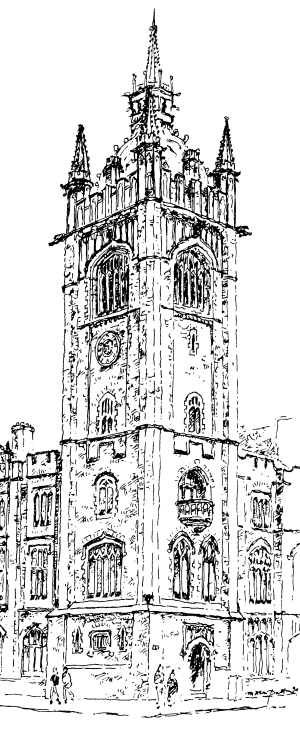The aim of this significant undertaking, which was approved at the 2016 General Assembly, is to tell a wider story than has been available to date, to acknowledge both what was good, but also to reflect upon the times when Presbyterians failed to be faithful peacemakers.
 Working with the Senator George J. Mitchell Institute for Global Peace, Security and Justice at Queen’s University, Belfast, members of Assembly heard that around 100 people had been interviewed as part of the project that will lead to the publication of a book, Consider Grace, later on this year. Resources for congregations are also in the process of being developed to supplement the book. They will be published early in 2020.
Working with the Senator George J. Mitchell Institute for Global Peace, Security and Justice at Queen’s University, Belfast, members of Assembly heard that around 100 people had been interviewed as part of the project that will lead to the publication of a book, Consider Grace, later on this year. Resources for congregations are also in the process of being developed to supplement the book. They will be published early in 2020.
Convener of the Dealing with the Task Group, Rev Tony Davison of First Armagh Presbyterian Church, told the General Assembly that at one of the project’s focus groups, an older person wondered if the past should just be ignored and that society should try to move on. “The youngest member of the group said, ‘There are cracks in our wall at home. I only recently discovered those cracks were the result of a bomb in our village. And there are cracks in all our families, churches, and towns and I need to understand why those cracks are there.’”
Mr Davidson continued, “While wider society appears to want to expose the others cracks, or paper over their own cracks, in the Presbyterian Church we have sought to face up to, and bring healing, to our cracked past.”
Looking forward to the publication of Consider Grace by Merion Press, Mr Davidson publically thanked the author Dr Gladys Ganiel, researcher Dr Jamie Yohanis, and all who had participated and advised the Task Group. “The book is the result of a unique collaboration between our Church and Queen’s University. Ministers and their spouses, victims, members of the security forces, first responders, politicians, quiet peacemakers, along with critical friends, and some who have left the denomination have been interviewed.
“We have 100 different stories from about 100 interviewees, most of whom have chosen to remain anonymous. We have not tried to cover up the variety of views among Presbyterians about the past, some of the stories are heart breaking and tear jerking. Grown Presbyterian ministers and elders will cry. Some stories are heart-warming and grace-filled. Some stories are heart challenging and deeply disturbing,” he said.
Mr Davidson concluded by saying, “As a denomination we have listened carefully and prayerfully to the voices of people who up to now have not had an opportunity to tell their story publicly…I am very aware of so many more stories that need to be voiced, written down, and kept so that we can then move on into a better future.”
The General Assembly also had an opportunity to discuss the Church's 2,800 word submission to the Secretary of State for Northern Ireland’s legacy public consultation Addressing the legacy of Northern Ireland’s past.
While recognising the limitations in the proposals, in a resolution, members of Assembly acknowledged that with some modification, the proposals presented ‘a potential opportunity to contribute to bringing a measure of healing to society in Northern Ireland.’ In the same resolution, the General Assembly reiterated ‘that any one-sided suite of measures, which fuels a culture of recrimination at the expense of reconciliation and the restoration of broken relationships, will have failed.’
The General Assembly also commend a paper on Human Rights, which seeks to establish a framework, based on biblical principles that will assist the Council for Public Affairs as it seeks to respond to rights-based issues in the public square.
The paper reflected on a Christian approach to contemporary thinking on Human Rights and makes the point, amongst many, that ‘too much of [the] current public debate and discourse is focused on individualism over and against the common good; on autonomy over the legitimate needs and concerns of others; with litigation and conflict becoming early ports of call over the painstaking work of building consensus.’
Other business will also be before the General Assembly. For further details, click here.
The vast majority of business sessions and presentations will be open to the public and streamed live via this website, along with Thursdays worship service at 2.45pm.
You can also follow a live Twitter feed @pciassembly using the hashtag #PCIGA19 for all the General Assembly's public sessions. You can find details of each days business here. All news stories, Reports and daily draft minutes, can be found in the General Assembly Overview here.
Today's business commences at 9.30am. Proceedings will close on Friday, 7 June at 1.30pm.